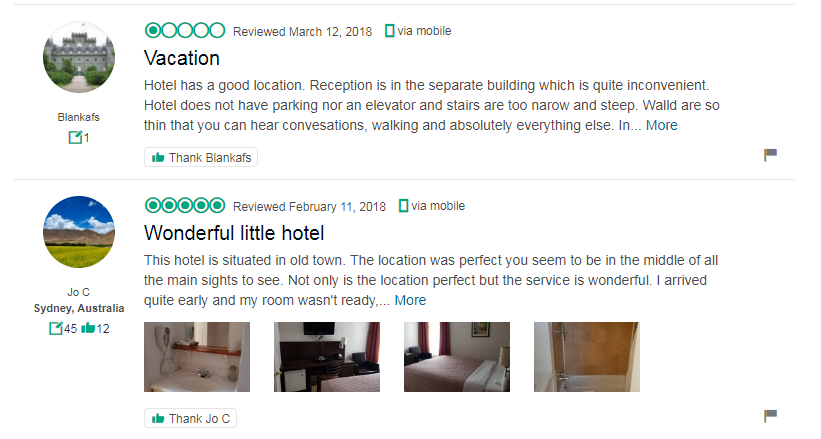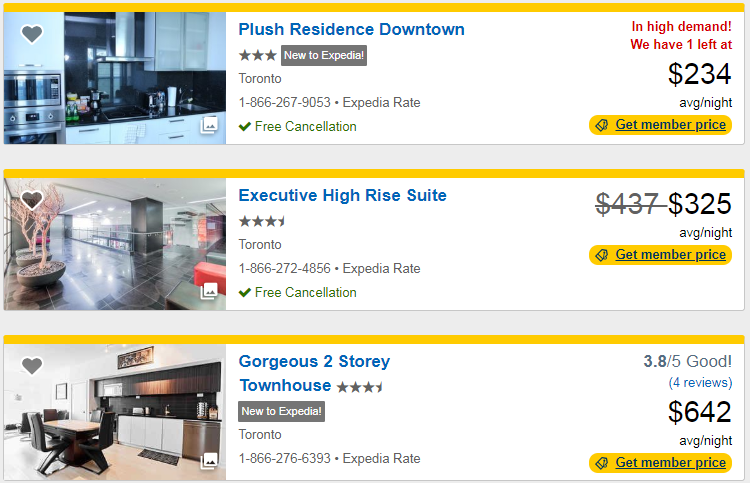
Navigation
Contact Information
2570 Agricola St, Halifax, NS, B3K 4C6
Email: info@timespacemedia.com
Phone: 902-429-8463
Subscribe to our insights newsletter

Are you in the tourism industry? Or are you planning a vacation? If you said ‘yes’ to either (or both), chances are you’re intimately acquainted with online travel agencies and review sites. They’re central to the leisure travelers’ decision journey – and frankly, they’re rife with potential pitfalls.
Before we dive in, here are two things to consider about the average leisure traveler.
Online travel agencies (ex. Expedia, Orbitz, Priceline, Travelocity, Trivago), review sites (ex. Yelp, Trip Advisor), and recommendation sites (ex. Fodors) all overlap in some way – and are central to the process of buying and selling tourism related products.
Consumers rely heavily on review sites – and that reliance translates directly into dollars and cents for businesses. We know that the recommendations on these sites can really sway what visitors decide to do. A University of California at Berkeley study showed that a half-star increase on Trip Advisor resulted in a 13% – 34% increased chance in a dinner-time sell-out for a restaurant. Similarly, a Harvard study showed that a 1-star increase could improve revenues by up to 9%.
For business owners, you need to be visible on these sites and have great ratings. For advertisers, getting your message on Trip Advisor means you’re getting in front of people who are very likely interested in travelling. And for consumers, you’re getting some assurance that you’d otherwise have trouble getting. It feels like a win-win-win.
But with so much riding on this, how are the ratings developed? And is the data actually that reliable?
The answer, worryingly, is that the ratings and offers aren’t really that reliable, for many reasons:
The Reviews: The reviews, reviewers, and the way the information is aggregated, are, at their core, flawed.

The Sites: Online travel agencies are businesses that make their money through advertising and/or booking fees (which often reach 15% or higher). They’re incented to entice certain behaviours from the users. That has led to two potential issues:

So what do we recommend?
If you’re a consumer heading away on your much-needed vacation, just keep your head. Check out multiple sources and reviews before relying too heavily on any one endorsement. Don’t be too swayed by the hard-selling tactics. Other deals will come up. You may also want to simply pick up the phone and call the hotel or restaurant you’re considering. You could find that you can get a more suitable offer and you can ask a human for the answers you seek.
If you’re a tourism–related business, you have to be present on these sites. It’s where your customer is and they’re far enough down the decision journey to be ready to make some choices about travel. If you’re providing a great service, your rating will likely reflect that. When you know a customer has particularly enjoyed their experience, ask them to give you a positive review; it could make a huge difference.
And, if all else fails – agree to disagree. Sometimes, one person’s dream vacation is another’s nightmare – as was brilliantly captured in this ad for a ski resort, celebrating their 1-star rating.

2570 Agricola St, Halifax, NS, B3K 4C6
Email: info@timespacemedia.com
Phone: 902-429-8463
Subscribe to our insights newsletter